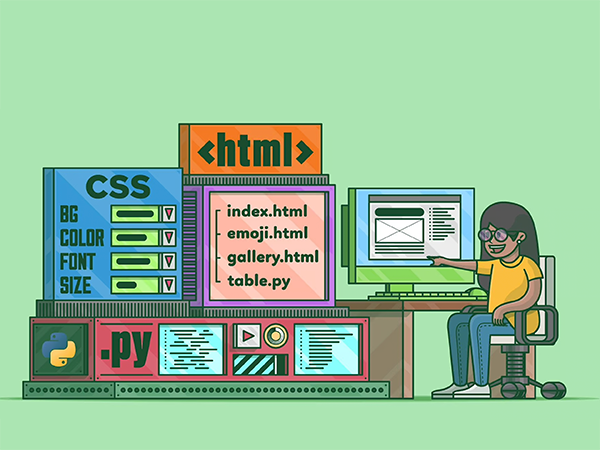Decoding Hosting Prices: Initial Price vs. Renewal Price
That $2.95/month hosting deal seems too good to be true, right? It probably is. We're pulling back the curtain on the web hosting industry's biggest secret: sky-high renewal prices that can triple your costs overnight. Before you enter your credit card details for that 'unbeatable' offer, you need to understand the common industry practice of high renewal rates and how to calculate the true long-term cost of a hosting plan.

Choosing a web host is one of the most foundational decisions for your online business, directly impacting your site speed, security, and ultimately, your revenue. But the landscape is littered with tempting introductory offers designed to mask the true, long-term investment. This guide will empower you to see past the marketing, do the math, and choose a hosting plan that truly fits your budget and business goals for years to come.
Why would a company advertise a price they don't intend to honor long-term? It's a classic customer acquisition strategy rooted in a few key business principles:

- High Acquisition Costs: Hosting companies spend a fortune on advertising and affiliate marketing to get you in the door. The low initial price is a loss leader, an investment they plan to recoup over the lifetime of your account.
- Customer Inertia: They are betting that once your website is set up, you won't want to go through the perceived hassle of migrating to another provider. This 'stickiness' allows them to raise prices significantly at renewal, knowing a large percentage of customers will simply pay it to avoid the effort of moving.
- The Upsell Funnel: Once you're a customer, you enter their ecosystem. The initial hosting plan is just the beginning. They will often try to upsell you on domain privacy, premium backups, security scanners, email hosting, and more—services that are often included for free with more premium, transparently-priced hosts.
The Real Math: Calculating Your Hosting's Total Cost of Ownership (TCO)
Marketing highlights the monthly price, but savvy business owners think in terms of Total Cost of Ownership (TCO). Let's break down a typical scenario to see how a seemingly 'cheap' plan can become expensive.
Imagine you're comparing two hosting providers for your small business website:
- Host A (The Teaser Rate Model): Advertises $2.95/month. The fine print shows this price is only for a 36-month initial term, paid upfront. The plan renews at the 'regular' rate of $12.95/month.
- Host B (The Transparent Model): Advertises a flat rate of $20/month. The price is the price, whether you pay monthly or annually.
Cost Calculation Over 4 Years (48 Months)
Host A:
- Initial Term (First 36 months): $2.95/mo x 36 months = $106.20 (paid upfront)
- Renewal Term (Next 12 months): $12.95/mo x 12 months = $155.40
- Total 4-Year Cost: $106.20 + $155.40 = $261.60
- Effective Monthly Cost: $261.60 / 48 months = $5.45/month
Host B:
- Total 4-Year Cost: $20/mo x 48 months = $960.00
- Effective Monthly Cost: $20/month
At first glance, Host A looks like the undeniable winner. It's almost four times cheaper! But this is where we must look beyond the price tag and evaluate the *value*.
The raw price is only one part of the equation. The reason Host B can charge a higher, flat rate is because they typically offer a superior product with fewer hidden costs. This is where you find the true best hosting for small business.

Performance and Site Speed
This is the most important factor. Host A's ultra-cheap plan is likely on an overloaded shared server with hundreds, if not thousands, of other websites. This can lead to slow loading times, especially during traffic spikes. A slow website directly impacts user experience, SEO rankings, and conversion rates. Google uses Core Web Vitals as a ranking factor, and slow hosting is the number one enemy of good scores. Fast website hosting isn't a luxury; it's a necessity for any serious online business.
Included Features vs. Upsells
Let's re-evaluate our comparison, adding in common upsells that Host A might charge for but Host B includes:
- Daily Backups: Host A might charge $3/month. Host B includes it. (+$144 over 4 years for Host A)
- Domain Privacy: Host A charges $15/year. Host B often includes it. (+$60 over 4 years for Host A)
- Staging Environment: A crucial tool for developers to test changes safely. Often missing on cheap plans, but standard with quality hosts like Host B. The cost of a broken site from a bad update is immense.
- Expert Support: When your site is down, do you want to wait 30 minutes for a basic support agent who reads from a script, or do you want instant access to a real expert who can solve the problem? The value of quality support is immeasurable when you're losing money every minute your site is offline.
When you add just a couple of these 'extras' to Host A's bill, the TCO starts to creep closer to Host B's, all while you're still getting inferior performance.
A Tale of Three Hosting Strategies
To simplify your choice, think of hosting providers in three main categories:
These are the household names known for low teaser rates. They are a viable option for personal blogs, hobby sites, or projects where budget is the absolute primary concern and performance is secondary. They offer the most affordable hosting to get started, but be prepared for the high renewal price and performance limitations.
2. The Transparent Performers (Managed WordPress/Cloud Hosting)
These providers (like Kinsta, WP Engine, Cloudways) build their reputation on performance, support, and predictable pricing. Their plans are optimized for speed and security, and they include the professional tools (staging, backups, CDN) that businesses need. This is often the true best hosting for small business because it provides a stable, fast foundation that supports growth.
3. The DIY Powerhouse (VPS/Cloud Infrastructure)
Providers like DigitalOcean, Linode, and Vultr offer powerful virtual private servers (VPS) at a very low price. This is the ultimate in performance-for-price, but it comes with a major catch: you are the system administrator. You are responsible for server setup, security, software updates, and troubleshooting. This path is only recommended for experienced developers and system administrators.

Your Action Plan for Choosing Smartly
Navigate the hosting market like a pro with this checklist:
- Always Find the Renewal Price: Before you even think about the checkout, hunt for the 'regular' or 'renewal' price. It's often in the terms of service or a small link in the pricing table.
- Calculate the TCO: Use a spreadsheet to calculate the total cost over a minimum of 36 months. Include the initial term and at least one renewal cycle.
- Factor in Essential Add-ons: Will you need daily backups? Domain privacy? A professional email address? Add these potential costs to your TCO calculation for teaser-rate hosts.
- Prioritize Performance: If your website is a source of income, treat fast website hosting as an investment, not an expense. A 1-second delay in page load can reduce conversions by 7%. A faster host can literally pay for itself.
- Read Recent, Independent Reviews: Look for reviews that discuss performance (using metrics like Time to First Byte - TTFB) and the quality of customer support, not just the price.
- Don't Fear Migration: If you're caught in a renewal price trap, don't feel stuck. Most quality hosting providers now offer free or heavily assisted migration services to make switching painless.
Conclusion: Invest in Your Foundation
That initial low price is designed to appeal to your wallet, but your website's success depends on a foundation of speed, reliability, and support. By looking past the introductory offer and calculating the Total Cost of Ownership, you can make an informed decision that aligns with your long-term business goals. Don't just buy a hosting plan; invest in your online infrastructure.
What's the biggest 'gotcha' you've ever encountered with hosting prices? Share your story in the comments below to help fellow website owners avoid the same trap! And if you found this guide helpful, please share it with a friend who's about to launch their site.















